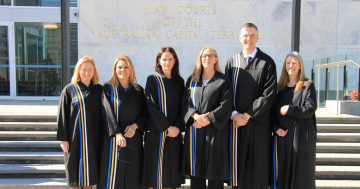 A simple change to allow certain offences to be prosecuted in a Local Court, rather than requiring them to be heard in Higher Courts, has reduced the workload of the District Court by over 1,000 matters in 18 months, according to an evaluation from the NSW Bureau of Crime Statistics and Research (BOCSAR).
A simple change to allow certain offences to be prosecuted in a Local Court, rather than requiring them to be heard in Higher Courts, has reduced the workload of the District Court by over 1,000 matters in 18 months, according to an evaluation from the NSW Bureau of Crime Statistics and Research (BOCSAR).
BOCSAR said that in 2018, a number of lower-level drug supply and robbery offences were reclassified to allow prosecutors to decide whether the matter should be resolved in the Local Court or the District Court.
“Previously, all such offences were finalised in the District Court,” BOCSAR said.
“This was despite most offenders receiving sentences that could be imposed by the Local Court,” it said.
“This reform has delivered both a large reduction in District Court workload and a significant reduction in the time it takes to finalise these matters.”
BOCSAR said that in the 18 months following the reform, 79 per cent of eligible matters were finalised in the Local Court; there were 81 fewer trials and 1,020 fewer sentence matters in the District Court; time from arrest to finalisation fell from over 14 months to about eight months; and the likelihood of a prison sentence did not change but sentence length fell significantly.
Executive Director of BOCSAR, Jackie Fitzgerald said that, in many ways, this was the perfect law reform.
“The reform cost almost nothing to execute, the justice system benefitted in moving matters from an expensive jurisdiction to a cheaper one and the reduction in court delay has given greater certainty to offenders and victims,” Ms Fitzgerald said.
BOCSAR’s 24-page Evaluation Report, The second tranche of the Table Offences Reform: Impacts on District and Local Court finalisations, time to finalisation and sentencing outcomes, can be accessed at this PS News link.









